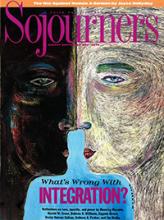FROM THE TIME when slaveholder Thomas Jefferson failed to do the right thing at Monticello, on down to the very present, the relationship between white dissident movements and black America has been a tangled, complex, and often problematic one. Through the centuries of the American story, black interests have been consistent. But white interests have fluctuated, and white support for black aspirations has fluctuated with them. The history of these relationships has been especially shifty due to the very different interests of the different sorts of white people who have, at different times, either sought, or found themselves in, alliance with black America.
We, of all colors and classes, are inheritors of that history, and of its contradictions. Most white readers of this magazine will locate their forebears in that history of relationship and struggle in the historical stream epitomized by the white abolitionists of the mid-19th century. The abolitionists comprised a largely educated and affluent movement heavily concentrated in America's Northeast quadrant. Later successors of the white abolitionists were found among the Northern liberal whites who went south in support of the black freedom movement of the 1960s.
In both historical instances, relatively privileged whites publicly identified themselves with the defense of African-American human rights. This defense was stated in terms of detached moral judgment, or idealism, or conscience, to coin a catch phrase. These two interracial episodes, abolitionism and the civil rights movement, represent the historical ground that we white folks in the Christian peace and justice movement tend to claim as our precedents and to hold up as high-water marks in the development of a religiously rooted movement for social change in America. They comprise the grid through which we conceive politics, race, history, and our places in them.
Read the Full Article
